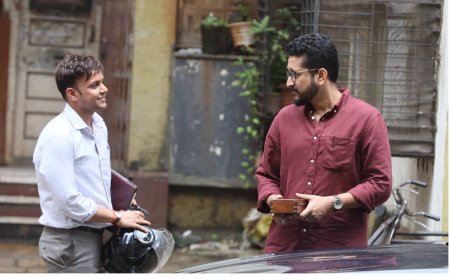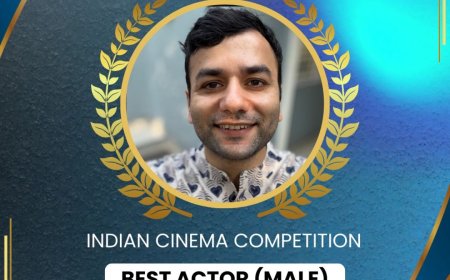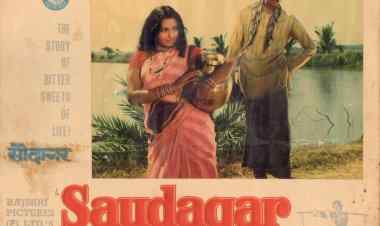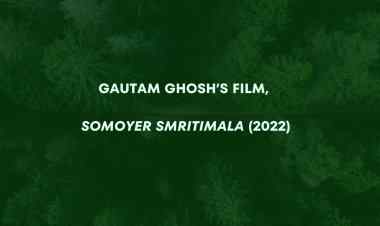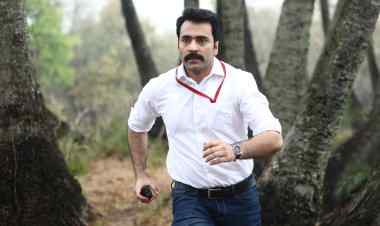Film Review: UJJHYO – A SUBTLE STATEMENT ON DOMESTIC VIOLENCE
Indranil Banerjee is a strapping young filmmaker who has honed his skills with television serials that earned a lot of eye-balls, writes Shoma A.Chatterji
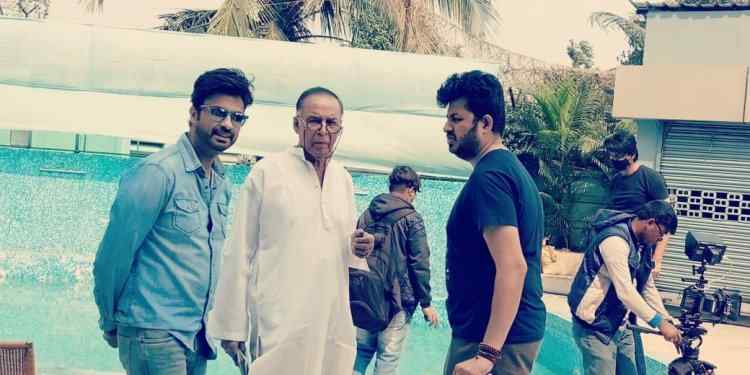
Indranil Banerjee is a strapping young filmmaker who has honed his skills with television serials that earned a lot of eye-balls. He has now made a short fiction film called Ujjhyo meaning “the unsaid”. Though on the surface, at face value, it appears to explore an unending conflict between father and son, the underlying statement the film carries between the lines is of domestic violence.
There are just two characters in the film – the son, portrayed by Samrat Mukherjee and the aged father played by Barun Chanda. The father, who appears to be quite independent and arrogant, lives alone in an apartment complex in Kolkata. The son lives separately and runs a restaurant. The son suddenly is asked to father-sit in place of his sister who does the needful on other days, cannot today because her child has suddenly taken ill.

Image: Filmmaker Indranil Banerjee
Though the son looks forward to meeting his father after a long gap and drives in loaded with vegetables and meat to cook for his father the latter’s favourite goat mutton curry, the father is not pleased at all. He throws away the curry along with the crockery and the cutlery spread across the floor and lashes out at his son for cooking without knowing about his dietary restrictions. The son says he spoke to the doctor before deciding to cook goat meat but the father remains angry and uncommunicative.
It is then that the son breaks out in anger and accuses the father of remaining busy under the excuse of work, work and more work, of coming home late, dead drunk and of beating up his mother for no fault of his. The mother is visible only through an old photograph the son holds close to his chest and takes it away with him when he leaves. He also caresses an old sari of his mother and takes it along. One is not sure whether the mother is alive and gone away or is dead as the son once mentions the word “divorce” among his tirade against his father.
The father is not to be convinced so he keeps on arguing, simmering with anger ready to burst but finally becomes quiet and asks his son if he can cook goat curry for him with his own hands.
Ujjhyo is a film that runs on several levels. One, it places a father and his son, apparently estranged, in a confrontational position as virtual enemies who are silent for long about the reason for the conflict. But two, it is basically a story where domestic violence plays a major role in pointing out, subtly and not so subtly, the fragmented relationship between father and son and the causes that led to the decimation that appeared to be a lost cause.
The entire film was shot indoors on the complex of a plush apartment well decorated with signs of affluence. When the son drives in, he is surprised to see his father resting on a chair with a cup of coffee on the table in front. The coffee, the son points out, has turned cold. He is surprised that his father is drinking coffee because he is too used to his father always armed with a bottle of whisky or some such. The father is not at all happy when he sees the son. Why? Because a lonely life has turned him into an angry boor? Or, he is angry to meet a long-lost sudden suddenly dropping in on him to cook his favourite dish for him? Or, rather, he is just to proud to have his loneliness disturbed by what he feels is faked empathy for a lonely father? May be, all these are clubbed together in a blurry cloud of emotions that are a mixture of anger, surprise, awkwardness, awe, each emotion telescoping into each other till they become a confused blur for both the father and the son.
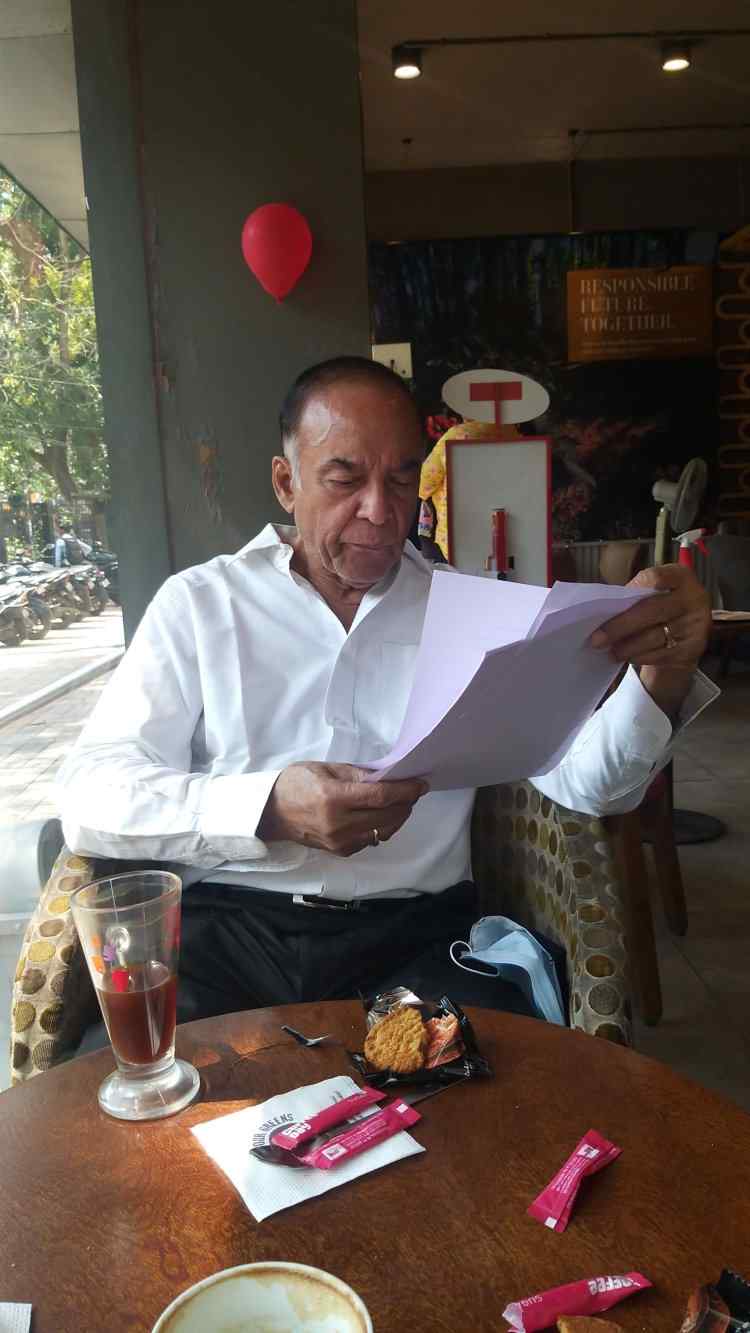
Image: film still
Some telephonic exchanges between the young man and his sister is filled with requests from his sister not to walk out as she needs him to father-sit for three days till her child is okay. He agrees with some regret and this leads to the fireworks between the father and the son. In the climax, the father looks at his son and says, “will you cook some goat curry for me yourself?” and the film closes on that note of hope.
Till date, this film has won 18 National and International Awards, 15 Worldwide Official Selections from Prestigious Film Festivals. The director is thrilled not just for the awards but also for the critical acclaim the film has attracted. The two actors have done a wonderful job of their roles as father and son. Barun Chanda as the father is just the right actor to slip into the role of an affluent, successful and arrogant old man who is too proud to confess that he is lonely. Samrat Mukherjee, a known face on Bengali television, is equally expressive in the many shades of emotions he is expected to display, without being loud at any point of the film.
Says Indranil about how he worked with his cast, “I went to a café to discuss the script with Barun Chanda. He loved my narration. I explained exactly what I wanted from him as the “character” – elderly, affluent, rude, arrogant, confused but lonely. As for Samrat Mukherjee who plays the son and runs a very successful acting school across Kolkata and beyond himself, I went to his house and we had a gala session over a cup of coffee . I do not like rehearsals a lot but in some crucial takes, I do improvise dialogues on the spot and lock the pattern of the way the actors should throw the dialogue on the sets.”
“I don’t work with producers who do not give me freedom. Casting is a major problem I face with my producers. I want to offer opportunities to new actors and do not like to change my casting at all. My best producer till date who gave me complete freedom is Maitreyee De who produced both Ujjhyo and A Sinful Story said to be India’s first silent mini-series. She was also the creative director in these two projects in addition to being the producer. She respected my casting choice and did not interfere. She respected my choice of casting,” Indranil sums up.
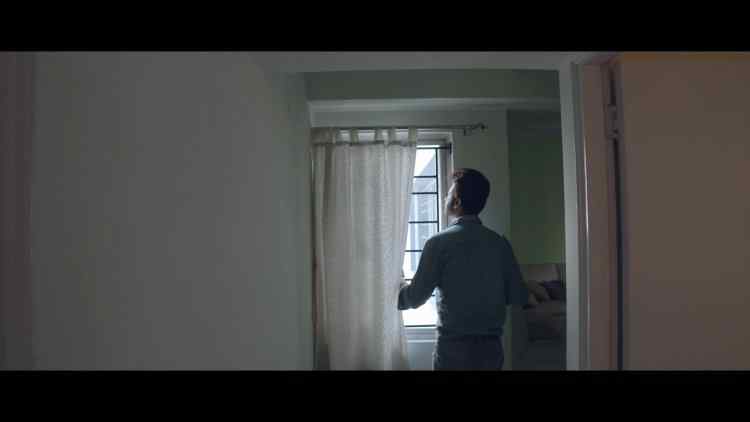
Image: film still
****
About the author: Dr. Shoma A. Chatterji is an Indian film scholar and author based in Kolkata
What's Your Reaction?







